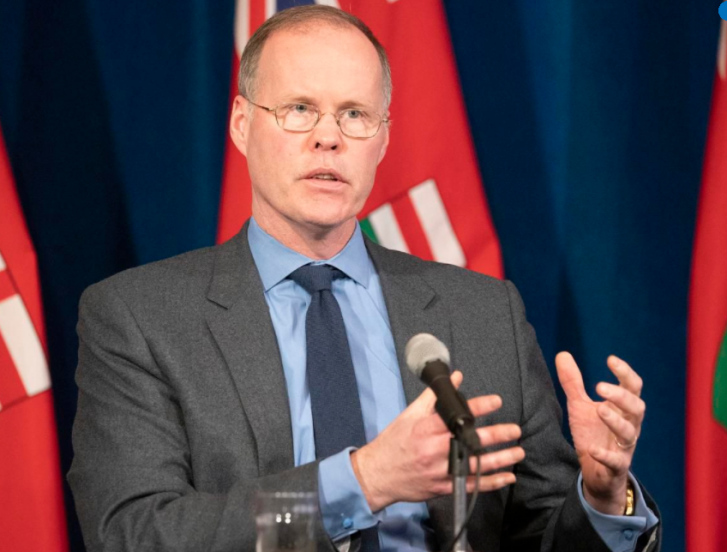Ontarians would struggle if a fourth wave of COVID-19 were to hit, possibly leading to a “fundamentally divisive point in our society,” says the co-chair of the province’s science table.
Adalsteinn (Steini) Brown, a professor and the dean of the University of Toronto’s Dalla Lana School of Public Health, recently spoke at an online university event during which he took questions on everything from his opinion on the best and worst of the pandemic — vaccine efforts and school closings, respectively — to the future.
“It really depends on how we continue to drive more vaccination and how thoughtfully we relax the public health measures,” he said when asked what’s to come.

If those things are done properly, “we can look at an increasingly more normal fall” during which schools are open, holiday shopping is enjoyable and “where the idea of getting together with loved ones is not something that’s fraught with peril and risk.”
However, he added, “if we falter on the vaccination, if we relax things wildly and without thought, or quickly and without thought, you could see a fourth wave. And I don’t know what the fourth wave would bring, but I think it will bring a fundamentally divisive point in our society where a number of people will want to see control of the pandemic, and a number of people will say, ‘I just can’t do this again.’
“I think that would be a bad place to be,” Brown added, “because it will probably end up being the worst of both worlds, rather than a choice on one side or the other.”
Ontario reported 218 new COVID-19 infections on Thursday, the highest daily tally in three weeks and the first time the figure has been more than 200 since July 8, even as the province vaccinates thousands more Ontarians every day.
Meanwhile, fuelled by the highly contagious Delta variant, the reproduction rate of COVID-19 has risen to 0.97, which is equal to late April levels. The rate has gone steadily upward since mid-July.
The U of T event, held mid-July and billed as “one-on-one with Steini,” also saw Brown praise the province’s science table, which is made up of 150 experts from across Ontario who continue to volunteer their time — some walking out of operating rooms still in their scrubs to attend meetings.
Brown said that while there may be practical and logical arguments for vaccine passports, there is no scientific evidence yet to justify their use, and that they also raise questions of equity.
Premier Doug Ford has already ruled out mandatory vaccinations for workplaces or to access services.
Asked about the province’s greatest accomplishment and misstep during the pandemic, Brown said he was happiest about the rollout of vaccinations, starting with the elderly and their caregivers, and then focusing on hot spots.
“That was a great step forward and something that addressed equity,” he said.
However, he added, it has been “incredibly challenging” to balance the many risks associated with the pandemic. “I am most disappointed that we haven’t been able to get schools open and keep them open,” he said.
He added that he believes improved ventilation in schools will be a key concern when students return to classrooms in September.
The July 14 event was billed as a discussion that would look at “how we could have done better with our COVID-19 response, the inevitable strain on our health system, the disproportionate impact on marginalized groups, the issues around collecting race-based data, and the path forward for brighter days ahead.”
On Wednesday, the provincial government announced $324 million in funding to help address the expected backlog in surgical and medical procedures.
Article From: The Star
Author: Kristin Rushowy

